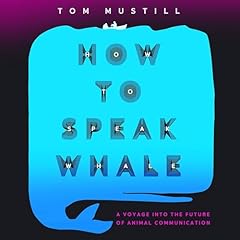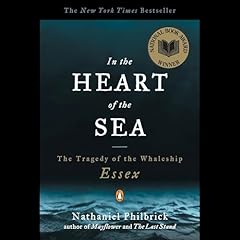
Orca
How We Came to Know and Love the Ocean's Greatest Predator
No se pudo agregar al carrito
Add to Cart failed.
Error al Agregar a Lista de Deseos.
Error al eliminar de la lista de deseos.
Error al añadir a tu biblioteca
Error al seguir el podcast
Error al dejar de seguir el podcast
Prueba gratis de 30 días de Audible Standard
Compra ahora por $23.30
-
Narrado por:
-
Paul Heitsch
-
De:
-
Jason M. Colby
Drawing on interviews, official records, private archives, and his own family history, Jason M. Colby tells the exhilarating and often heartbreaking story of how people came to love the ocean's greatest predator.
Historically reviled as dangerous pests, killer whales were dying by the hundreds, even thousands, by the 1950s - the victims of whalers, fishermen, and even the US military. In the Pacific Northwest, fishermen shot them, scientists harpooned them, and the Canadian government mounted a machine gun to eliminate them. But that all changed in 1965, when Seattle entrepreneur Ted Griffin became the first person to swim and perform with a captive killer whale. The show proved wildly popular, and he began capturing and selling others, including Sea World's first Shamu.
Over the following decade, live display transformed views of Orcinus orca. The public embraced killer whales as charismatic and friendly, while scientists enjoyed their first access to live orcas. Yet even as Northwesterners taught the world to love whales, they came to oppose their captivity and to fight for the freedom of a marine predator that had become a regional icon.
©2018 Oxford University Press (P)2019 HighBridge CompanyLos oyentes también disfrutaron:




















Las personas que vieron esto también vieron:





Narrator Paul Heisch reads the facts of what happened in a very matter-of-fact way, which strangely enough, makes some of those facts hit that much harder. Beyond the accidents like cables on slings breaking while in the air and loose nets entangling the whales, there's the sheer incompetence of oceanarium owners repeatedly making the same mistakes because NOTHING was understood about orcas at the time.
And yet, it's only BECAUSE they were on display that anyone took an interest, that anyone started studying them and watching their mating habits and their feeding habits and learning anything about them. We only started studying them, caring about them, and conserving their numbers once those marine parks started showing the animals.
It's important to read/listen to this book, even when it gets hard to, and to realize how fundamentally the captivity of killer whales is WHY we came to love them in the first place. Some of the men who hunted them for capture are haunted by it; some of them only seemed to ever care about the money, right up to the end. But only through their efforts of bringing the whales to be viewed by the general public did they turn the ocean’s apex predator into mankind's friend.
Without the capture and display industry, would we give a damn about killer whales in the first place? Without captive orcas on display, would they have ever outgrown the title of being killers? Would anyone have fallen in love with them enough to start studying their social habits, their vocalizations, and how to tell them apart from one another? It's possible, of course, but a lot less likely.
For better or worse, the display of captive orcas kick-started conservation efforts, gave birth to organizations like Greenpeace, and implemented a *nearly* world-wide moratorium on whaling. Rather than furthering scientific knowledge by killing and dissecting orcas, we moved slowly into watching the creatures living in their natural habitat. We know as much as we do now because we loved seeing those captive orcas, but we couldn't stand seeing them being kept captive.
It's not an easy book to get through, but it's an important one to read/listen to.
Hard to hear, but NECESSARY
Se ha producido un error. Vuelve a intentarlo dentro de unos minutos.
informative yet heartbreaking - we must do better
Se ha producido un error. Vuelve a intentarlo dentro de unos minutos.
Very informative, minimized lessons from Tilikum
Se ha producido un error. Vuelve a intentarlo dentro de unos minutos.
My heart is forever Orca filled.
Se ha producido un error. Vuelve a intentarlo dentro de unos minutos.
Gives you lots of information on whale events and people in the cetacean world.
Se ha producido un error. Vuelve a intentarlo dentro de unos minutos.


